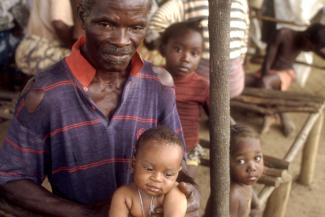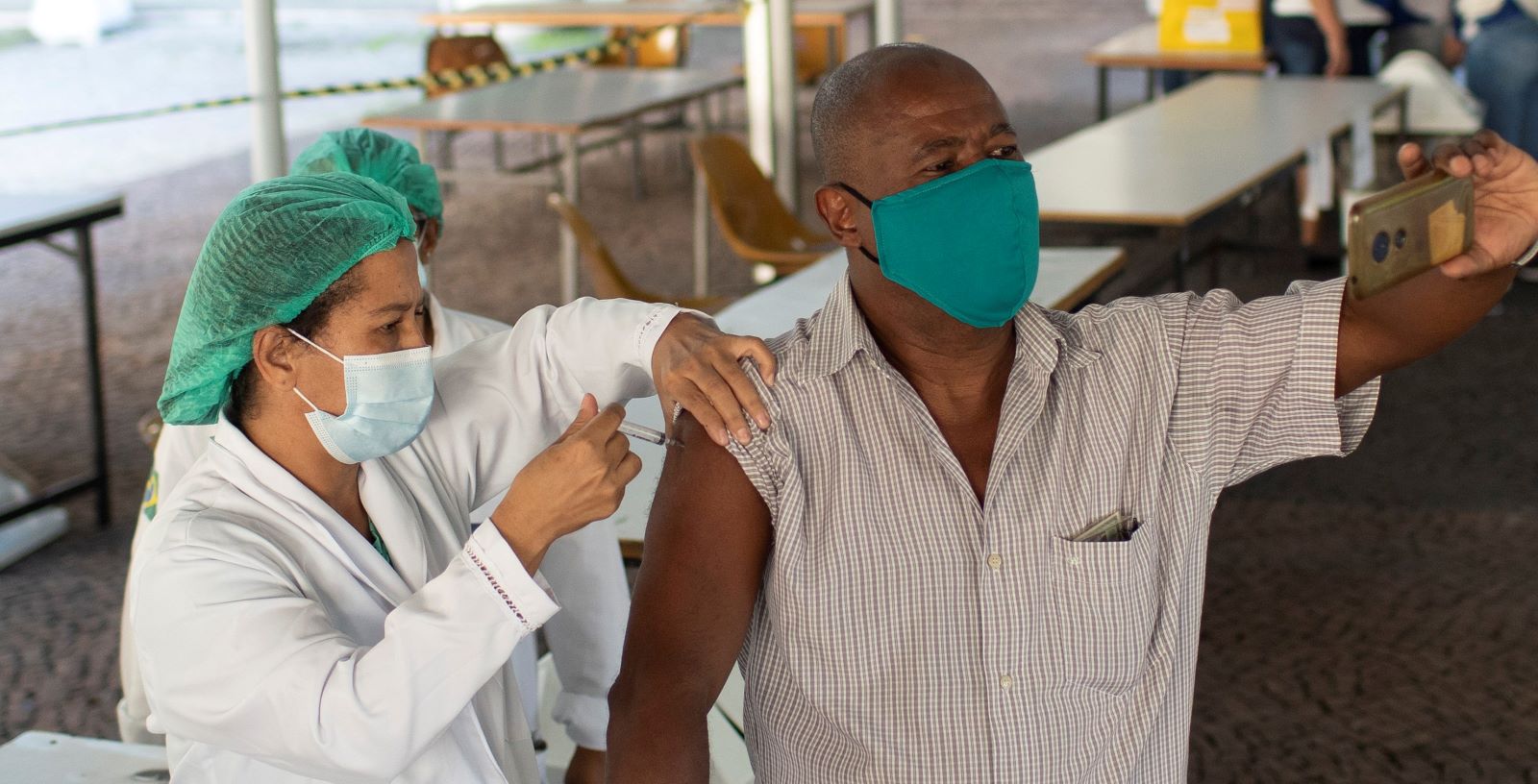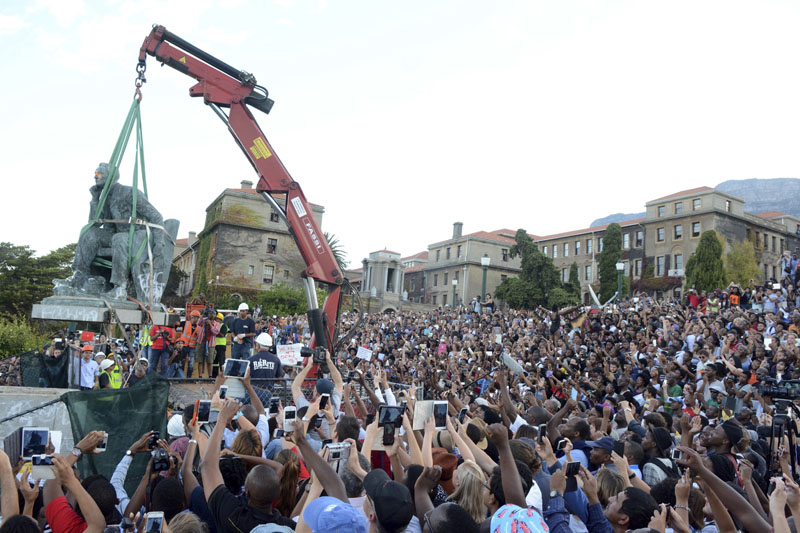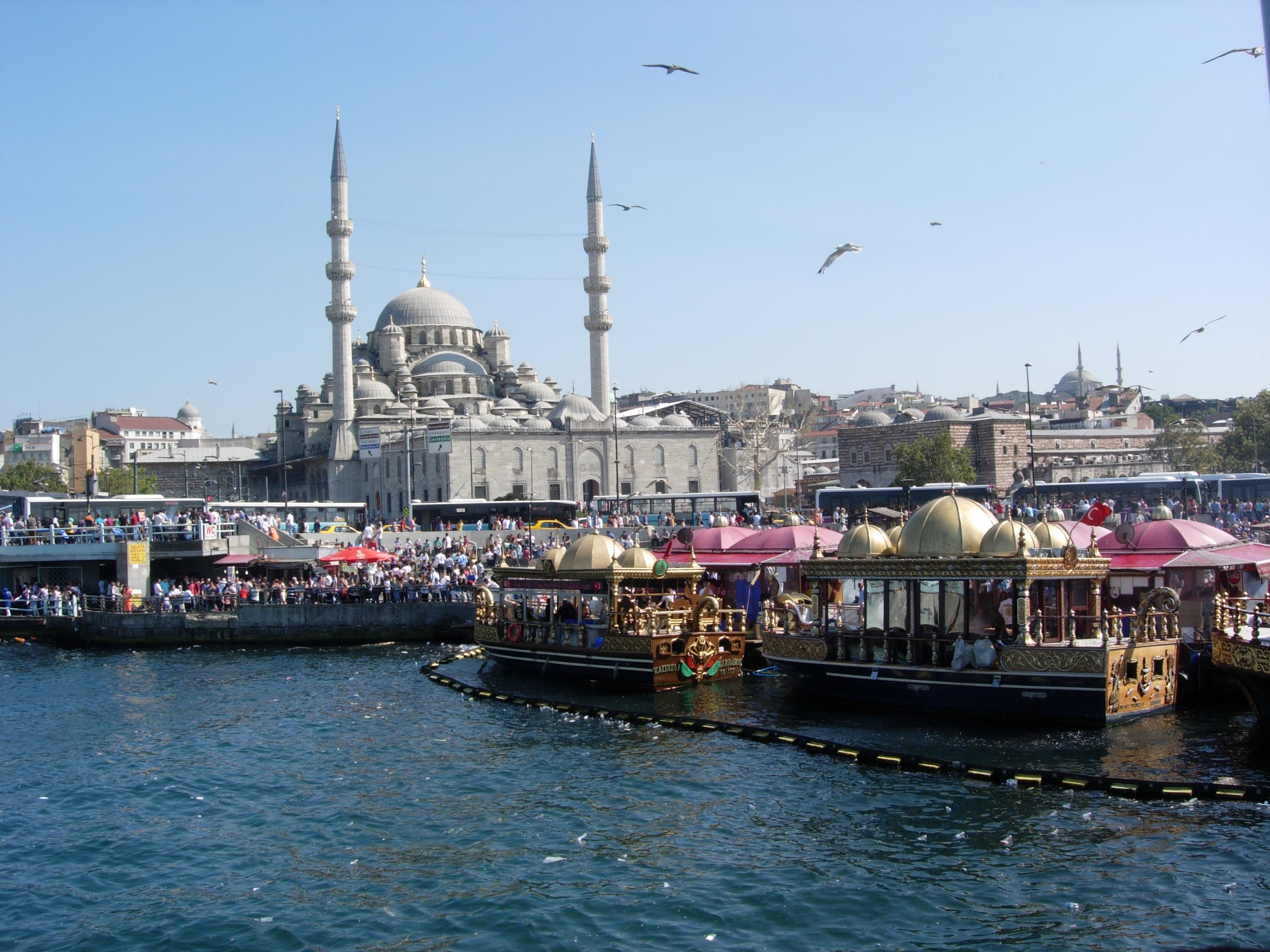Social protection
Elderly left alone
By Samwar S. Fallah

Martha Nyemah is 96 years old. She lost contact to her four children during Liberia’s civil war. As far as she knows, two have died, and the other two have left the country. She has become a beggar. Every day, a distant relative pushes Martha in her wheelchair to sit in front of a bank in Monrovia and ask for alms.
In Africa’s oldest independent republic, families must bear the burden of taking care of their relatives. Many families that can’t afford to do so end up abandoning the old folks.
There is a National Social Security and Welfare Corporation (NASSCORP), but it only serves individuals who contributed premium fees to its programmes when they were still working. NASSCORP is a statutory public trust. Its job is to administer the country’s social insurance programme for cases of lost income due to injury, invalidity, old age or death of a breadwinner.
Liberia faces a huge unemployment challenge however. Many people never get a formal-sector job, so they never contribute any payments to NASSCORP. When they get old, the majority of people plainly depend on their families.
NASSCORP was established by law in 1975. It is designed to pay a monthly pension that amounts to at least 25 % of what a retired person earned as monthly average in their working life. The schemes are funded by contributions from employers and employees. Of a monthly wage, 7.75 % must currently be paid to NASSCORP. The employer pays three percent, and the employee pays the rest. To be entitled to the 25 % pension, a person must be at least 60 years old, and contributions must have been paid by both parties for at least 100 months. For each 10 months’ of additional contributions, the pension rises by 1 % of the average monthly income.
Liberia is a poor country however. Incomes are low in both the private and public sectors. A retirement pension of 25% of the average former earnings is insufficient.
Lost and destroyed
Nonetheless, many people wish they had at least this kind of support. Many documents were lost in 15 years of civil war, and governmental records were destroyed. As a consequence some elderly people cannot prove today that they are entitled to a pension. Most, however, simply do not have any history of formal employment at all. That is the case particularly in rural areas.
All over Liberia, aged people have to rely on their families for care. This works out better in rural communities than urban ones where the costs of living are higher and traditional bonds are not as strong.
Mary Mulbah, a middle-aged woman, tells of the difficulties when caring for an elderly person. Her 93-year-old mother is diabetic and must go to a clinic every week to get medication. The medication is costly. Mary Mulbah works for a bank, and her husband works too. They have four children. “We have to cook different dishes for her apart from what the rest of the family eats,” Mary Mulbah says. “It is not easy.” The family tends to spend more money than it earns.
Catherine Sumo, whose family faced similar challenges, says the best thing is to send the elderly to live in the rural area, where – according to her – it is not difficult to get food, and traditional medicines are relatively inexpensive. “My mother is doing well up interior. She sounds lively on the phone whenever I speak with her,” Catherine Sumo reports. “When she was here in Monrovia, it was like a permanent sickness.” Some Liberians who live in the USA take their parents there too, and put them in homes for the aged.
Apart from the NASSCORP, the Liberian Government has two other programmes that cater for disabled people and veterans. The sad truth, however, is that neither the “Group of 77” nor the “National Veterans Bureau” make much of a difference.
The “Group of 77” was established in 1977 with the intention to cater to the needs of the less fortunate citizens of Liberia. The organisation is administered by the Office of the Vice President of Liberia, and its executive director is the spouse of the vice-president. The objectives include assisting disabled children to attend school and ensuring that disabled people become self-supported. Due to the war, however, there are very many disabled persons in Liberia. Many former combatants have lost a limb. The majority of them now roam Monrovia and other towns as beggars. The “Group of 77” is unable to meet their needs.
For veterans from the official armed forces, the police and several other government agencies, there is the National Veteran Bureau. It is funded by the government, and is designed to provide sources of income and training opportunities. It lacks the funding it needs, however. In the financial year 2012/2013 it was allotted about $ 400,000, on which $ 250,000 were earmarked for administration and management, and only $ 150,000 for veterans’ skill training in fields from agriculture to engineering or healthcare.
Moreover, the Bureau’s target group are only those veterans who have been certified by the Ministry of National Defence. Anybody who was not in the country when the certification scheme was carried out in 2007 does not qualify. Many former soldiers, however, had fled the country and did not return before the second post-war elections were held in 2011.
All summed up, Liberia is still struggling to cope with the consequences of its devastating civil war. And the elderly people, whose lives were destroyed by that war, are still bearing the brunt.
Samwar Fallah is a journalist with africanstandardnews.com in Monrovia. samwar2005@yahoo.com











